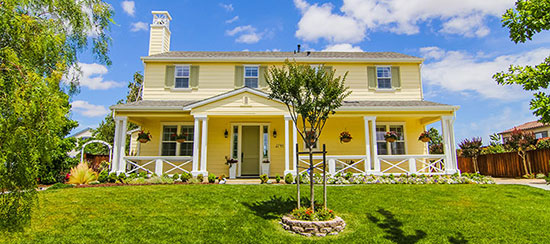
Why Buy With Us?
As your Buyer’s Representative, we can make the process of house hunting much easier and more efficient than if you did it all yourself. We can help you get financing, guide you to local neighborhoods, help you determine your budget, and prioritize a list of essential features that you need in your next home. We’ll save you valuable time by finding the properties that best suit your requirements.
Once you’ve found a place that catches your eye, we’ll look at comparable properties in the area to help determine a purchase offer. Then we’ll negotiate on your behalf with the seller to make sure you get the most favorable terms.
It’s our job to look after your best interests, and we will do so at no cost to you as a buyer.
Figure Out How Much You Can Afford
What you can afford depends on your income, credit rating, monthly expenses, down payment, and the current interest rate. Your agent can help you find a lender or mortgage broker to determine how much you can afford.
Now that You are Pre-Approved
Once you know how much you can afford, it’s time to start shopping. Make a wish list of things you would like in a home. Start with the things that are most important to you, i.e. location, number of bedrooms, baths, etc. Let your agent know about the non-essential things that you would like to have. Keep your list handy for when you begin to tour your homes. Your agent will use his/her resources to narrow the search and find you the best matches possible.
Making an Offer
Now that you’ve found your dream home, the next step is negotiating a contract. This is where it becomes critical to have an experienced agent working for you. Some factors include escrow deposit, price, financing, terms, date of possession, repairs, and furnishings. A sales agreement should include a time frame to complete inspections of the property before you are bound to complete the purchase. Your agent will advise you as to which inspections are recommended and required.
The Ratified Contract
Once the offer to purchase is negotiated and changes are accepted in writing , the agreement becomes a “ratified contract”.
At this point your “earnest money” is deposited. The earnest money deposit is applied to your down payment and closing costs.
The first thing you will want to do is to secure your mortgage. You’ll want to contact your lender or mortgage broker to notify them that you have found your home of choice and need to begin all of the necessary paperwork to prepare your loan. Your lender or mortgage broker will walk you through the process. Part of the process is to have the home appraised to make sure its value equals the purchase price and satisfies the lender’s requirements.
The seller will be responsible for having a pest inspection done as well as having the well and septic inspected, if applicable.
You will want to contact an insurance company to begin the process of obtaining homeowner’s insurance and choose a settlement service to close the transaction.
You will also want to contact the utility companies to set a date to have the utilities turned on in your name. Your real estate agent can provide you with the contact information for the various companies.
The settlement service that you choose will collect all of the documents and payments and when everything is complete, will perform the exchange of money and title.
Closing Costs
In addition to the earnest money deposit and down payment, you should keep in mind the amount of money you will need for closing costs. Closing costs are the miscellaneous fees charged by those involved with the sale of the home such as your lender for processing the loan, the title company for handling the paperwork, surveyors, inspectors, local government offices for recording the deed, etc. Typically closing costs amount to around 3% of the price of the home. Your lender will give you a “good faith estimate” of the closing costs during the loan process. Buyers and sellers can negotiate on paying part or all of the closing costs as part of the sales agreement.
